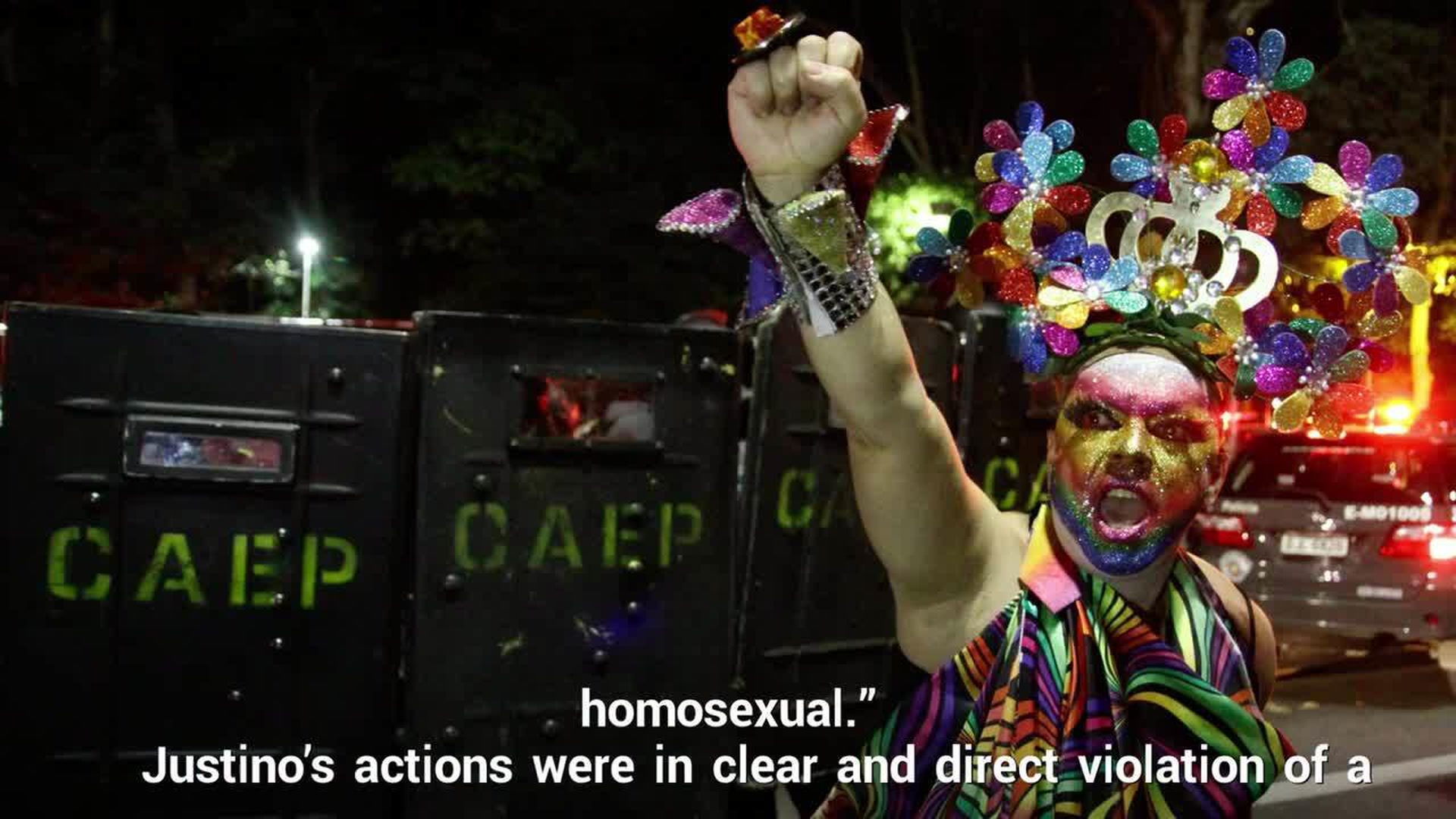News & Opinion
Brazil Legalizes Conversion Therapy, Rules Homosexuality a Disease

Leo Correa/AP
"The sick ones are those who believe in this grand absurdity."
September 20 2017 1:12 PM EST
May 26 2023 1:29 PM EST
By continuing to use our site, you agree to our Private Policy and Terms of Use.

"The sick ones are those who believe in this grand absurdity."
A federal judge has overturned an 18-year-old ban on conversion therapy in Brazil, sparking outrage from the queer community and mental health professionals.
Judge Waldemar de Carvalho ruled in favor of Rozangela Justino, an evangelical Christian and psychologist whose license was revoked after she was caught providing conversion therapy in 2016. She has long been outspoken about her belief that homosexuality is a disease, once even telling the newspaper Folha de S Paulo that she feels "directed by God to help people who are homosexual."
Justino's actions were in clear and direct violation of a 1999 ban on psychologists offering treatments that claim to "cure" people of their sexuality, put in place by Brazil's Federal Council of Psychology. "There is no way to cure what is not a disease," Council president Rogerio Giannini said in defense of the ban, which until this point had been successfully defended against all legal action and even a proposed bill in Congress. The Council has promised it will continue to fight the new ruling.
Unfortunately, not everyone shares Giannini's opinion. Evangelicalism and right-wing politics are on the rise in Brazil, and most lawmakers seem to side with Marcelo Crivella, a former evangelical minister and the current mayor of Rio de Janeiro who has called homosexuality a "terrible evil" and claims it's caused by botched abortions.
Homophobic rhetoric from lawmakers has empowered opponents of equality and made the fight for queer rights in Brazil a mountainous struggle. Despite a thriving gay tourism scene and having legalized same-sex marriage in 2013, Brazil remains one of the most dangerous countries in the world for queer people to live. On average, one queer or trans Brazilian is murdered every day, according to a study.
The queer community and allies in Brazil are rightfully horrified by another regression to the progress made in recent decades. Many took to Twitter and other social media outlets using the hashtag #curagay (meaning "gay cure" in Portuguese) to express their outrage, including a handful of prominent celebrities. Ivete Sangolo, one of Brazil's most popular singers, posted on Instagram: "The sick ones are those who believe in this grand absurdity."
